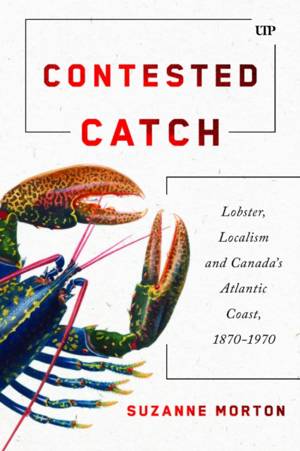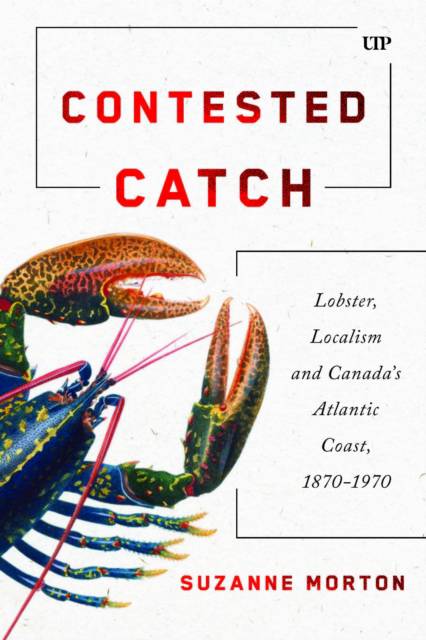
- Afhalen na 1 uur in een winkel met voorraad
- Gratis thuislevering in België vanaf € 30
- Ruim aanbod met 7 miljoen producten
- Afhalen na 1 uur in een winkel met voorraad
- Gratis thuislevering in België vanaf € 30
- Ruim aanbod met 7 miljoen producten
Zoeken
Contested Catch
Lobster, Localism, and Canada's Atlantic Coast, 1870-1970
Suzanne Morton
Paperback | Engels
€ 39,95
+ 79 punten
Uitvoering
Omschrijving
Contested Catch: Lobster and Localism on Canada's Atlantic Coast, 1870-1970 explores the complex development of the lobster fishery in Canada, focusing on the interplay between the ecology of lobsters, local fishing practices, evolving technologies, changing markets, and the role of the state. Drawing on nearly thirty different archives, this book spans the century from the expansion of the transnational commercial lobster industry and the introduction of government regulations around 1870 to the establishment of the first restricted-access ocean fishery on Canada's East Coast in the late 1960s.
Suzanne Morton argues that lobster regulation was always about more than just protecting the lobster population - it reflected deeper local, political, and economic forces at play. She examines how the Canadian state, keeping its enforcement budget to a minimum and wanting to avoid electoral reprisals, interacted with local communities, businesses, and political groups to regulate fisheries. While the government and other officials implemented formal regulations and turned to commissions and government science, local fishers operated with informal systems based on tradition, economic interests, and sometimes coercion.
Following the Second World War, with economists playing a prominent role, policy shifted from managing lobster as a sustainable resource to increasing the standard of living for fishermen and their families through rationalized efficiency, ultimately limiting access to who could fish. Even then, the fishery was shaped by both formal government efforts and local, social dynamics.
Suzanne Morton argues that lobster regulation was always about more than just protecting the lobster population - it reflected deeper local, political, and economic forces at play. She examines how the Canadian state, keeping its enforcement budget to a minimum and wanting to avoid electoral reprisals, interacted with local communities, businesses, and political groups to regulate fisheries. While the government and other officials implemented formal regulations and turned to commissions and government science, local fishers operated with informal systems based on tradition, economic interests, and sometimes coercion.
Following the Second World War, with economists playing a prominent role, policy shifted from managing lobster as a sustainable resource to increasing the standard of living for fishermen and their families through rationalized efficiency, ultimately limiting access to who could fish. Even then, the fishery was shaped by both formal government efforts and local, social dynamics.
Specificaties
Betrokkenen
- Auteur(s):
- Uitgeverij:
Inhoud
- Aantal bladzijden:
- 296
- Taal:
- Engels
Eigenschappen
- Productcode (EAN):
- 9781487571825
- Verschijningsdatum:
- 15/12/2025
- Uitvoering:
- Paperback
- Formaat:
- Trade paperback (VS)
- Afmetingen:
- 152 mm x 226 mm
- Gewicht:
- 385 g

Alleen bij Standaard Boekhandel
+ 79 punten op je klantenkaart van Standaard Boekhandel
Beoordelingen
We publiceren alleen reviews die voldoen aan de voorwaarden voor reviews. Bekijk onze voorwaarden voor reviews.








